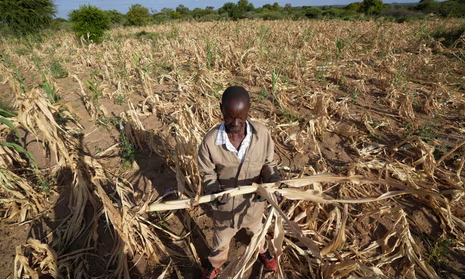Zimbabwe’s economic growth outlook has been sharply downgraded due to a severe drought wreaking havoc on crop yields, Finance Minister Mthuli Ncube revealed on Wednesday. The country, grappling with one of southern Africa’s worst droughts in decades, now anticipates a growth rate of 2% for 2024, revised downward from a previous forecast of 3.5% in November.
The economic setback is primarily attributed to an El Niño-induced drought, which has inflicted widespread crop failures across Zimbabwe. El Niño, a natural climate phenomenon characterized by unusually warm ocean temperatures in the Pacific, disrupts weather patterns globally.
“We are all downgrading our growth targets for 2024 because of deeper than expected impact on our agriculture, but next year is brighter,” Minister Ncube commented, hinting at a projected rebound with growth expected to surpass 5% in 2025.
The drought’s toll extends beyond Zimbabwe, with neighboring Zambia and Malawi declaring states of disaster due to similarly diminished crop outputs. Last month, the International Monetary Fund (IMF) also revised its growth forecast for Zimbabwe, anticipating a decline to 2% from last year’s 5.3%.
Looking ahead, the Zimbabwean government forecasts a 72% drop in staple maize production for the 2023/24 season, underscoring the severity of the agricultural crisis. To mitigate food shortages exacerbated by the drought, the country plans to import 1.4 million metric tonnes of grain.
In response to the humanitarian crisis, Zimbabwe recently received $32 million in drought insurance from an African Union agency to alleviate food insecurity. Additionally, the government has appealed to international donors for assistance in providing critical food aid.
Minister Ncube is expected to present a mid-term budget review later this month, where further measures to stabilize the economy amid the ongoing agricultural challenges will likely be addressed.

